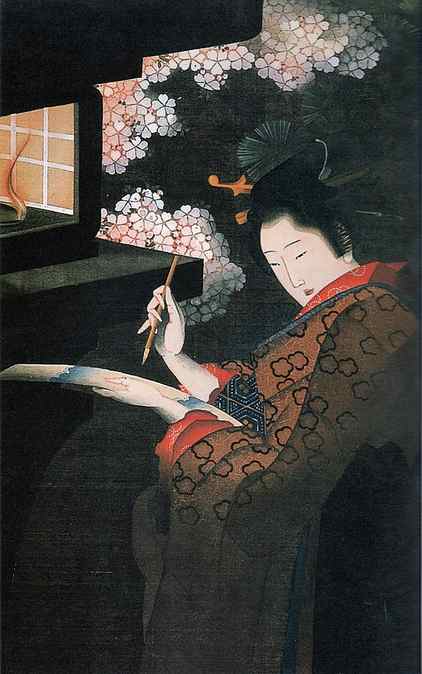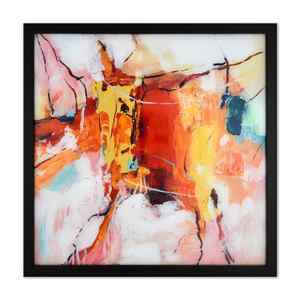The proof can be found in a simple web search for Caprio Cellars. There are more than 1,600 Google reviews, and the overall rating is a perfect 5.0. It’s an astounding testament, particularly considering the expectations customers have for tasting rooms and restaurants.
How to etch glass with Cricut

Custom-etched glasses with Cricut make easy, professional-looking, personal gifts for friends and family.
Are you looking for an easy, inexpensive, thoughtful gift idea? Cricut community member Vanessa Teran created a custom-etched wine glass for her son’s teacher’s birthday. Not only was this her first time etching glass, but it gave her results “beyond” what she expected. It’s simple and straight forward with no special after-care needed – a professional-looking personalized gift for less than $5!
Wine glass: $4 for four (minimum) from Dollar Tree
Etching cream: ~ $10 for a 3 oz. bottle from Joann, Michaels, or Amazon
Cricut vinyl: starting at $2.99 per roll
Total cost per wine glass: $4.25 or lower.
The etching cream and vinyl will last more than four glasses so as you create more custom gifts, it’ll cost less per item!
Here’s how to make a custom etched glass of your own

- Wine glass (or other glass base you want to use)*
- Isopropyl alcohol (aka: rubbing alcohol)
- Etching cream such as Armour Etch
- Vinyl and transfer tape
- Small paint brush
- Protective gloves and eyewear
- Masking tape (or painter’s tape)
- Cricut machine+ to create stencil
*Colored glass may not etch. Colored glass that has been treated with a coating prevents the etching cream from working. However, true colored glass, where the glass is colored through and through, typically still reacts to the etching cream.
+Note that these instructions are specific to creating a stencil with a Cricut. You don’t necessarily need a Cricut machine to make this project, but it’ll help create a more precise stencil for better results.
Clean the surface
First, prep you glass surface by cleaning it with the isopropyl alcohol to remove fingerprints, dust, and grease. Let it dry completely after a thorough cleaning.

Uniquely complimentary experience

Simply put, no one in the Pacific Northwest does it like Caprio Cellars.
- There is no tasting fee.
- There is no charge for the not-so-small plates prepared within Murphy’s state-of-art food truck.
It bears repeating — the complementary wine-and-food experience is complimentary. Heaven help the next winery on someone’s tour after they spend a couple of relaxing hours at Caprio.
“It is totally innovative and disruptive to the industry,” Murphy admits. “And those who say we must be losing money with this approach would be wrong. Caprio is successful, and Emily can attest that we are making money.
“The key is we have to sell direct to the consumer,” he adds. “And if you can keep that DTC figure around 95%, you are in the Holy Grail of wine selling.”
According to Murphy, Caprio’s DTC stands at 97%, so those who visit are tasting, enjoying, buying, joining the wine club and fueling the growth of Caprio Cellars. In the past two years, Murphy has increased production by about 50%, closing in on 3,000 cases.
“The easy thing for us to do would have been to open the hospitality center and charge a tasting fee, but we were going to take a different approach,” Murphy says. “We’re not going to charge a tasting fee. We’re going to give an incredible experience, and we’re going to cross our fingers that we sell more wine because of that.”
Caprio Cellars, Murphy celebrate 15th vintage

Caprio Cellars began producing wine in the 2008 vintage, but Murphy didn’t create a stage for his bottles until 2019. In many ways, the timing couldn’t have been more challenging, with the pandemic just around the corner.
“It was a total roll of the dice, and everyone thought I was crazy for two reasons — no tasting fee and appointment only,” Murphy says. “And then COVID hit and everyone thought I was a genius because then everything was by-appointment. For a while, you were only allowed 20% occupancy, which worked for us because the building can hold 200, so that’s 40 people max. But our business model is that we only take 20 people at a time, so that was luck.
“So much has played into our favor,” Murphy continues. “And when we were shut down, we did the Friday night to-go dinners. We’d serve 50 to 100 dinners every Friday, and they were super popular. Those were the days when you weren’t going anywhere, so when people pulled up they acted as if they hadn’t seen a human in years.”
Those seeking a pretentious experience won’t find it at Caprio Cellars because that’s not Murphy. On this day, he wore a plain, logo-free white golf shirt and a pair of dark khakis. He talked about how he strives to keep things straightforward, honest, wholesome and hospitable.
“I’m a simple guy,” Murphy says with a chuckle.
His security gate at Caprio requires a phone call to the tasting room in order to proceed, but at the end of the driveway is a level of hospitality unmatched in the Northwest — starting with a flute of bubbles and a smile from Kiefer or a member of her team before you get to the door.
“I looked at the industry and spent a lot of time in friends’ tasting rooms watching what people do,” Murphy says. “People come to have a good time and be with their group — hence our tall tables with plenty of space and the fire pits outdoors. And people want food.”
Chico State benefits from Murphy’s success

Caprio Cellars became a tribute to Murphy’s family. And it was made possible by growing up near Sacramento with an interest in civil engineering and graduating from Chico State.
“I’d go see my grandmother, Eleanor Caprio, and she would give you a big hug and plate of lasagna and tell you how beautiful and brilliant you are. Why wouldn’t you want to go there?” Murphy says. “I always smile when I tell that story, but what a gift you can give somebody — just words of compliment and a plate of lasagna.”
As a 17-year-old, he struck up a seemingly unlikely friendship with a high school classmate, Hayden Watson.
“I had long hair, a mustache, played bass in a heavy metal band and was on the football team,” Murphy says with a smile. “Hayden was class president, would wear two IZOD shirts — with both of the collars up — and shoes with pennies in them. We couldn’t have been further apart.”
One day, Murphy was finishing up a drafting project — a prototype for a subdivision he dreamed he would build someday. Watson spotted it and lined up a meeting with his father — a real estate developer.
The path of Murphy’s life changed forever. The summer between his freshman and sophomore years at Chico State, the two high school chums went north and built two houses within the Watson family’s new subdivision in Redmond, Ore.
“We made $10,000 each and looked at each other and said, ‘We could probably do this.’ And that was 24,000 houses ago,” Murphy says.
Hayden Homes develops communities in Oregon, Washington, Idaho and Montana, which means regular trips to each region for Murphy.
“We like to build houses for the people who run our country, and we’re proud of that,” he says. “Our average price has been between $250,000 and $300,000, but lately is getting close to $400,000. We don’t like that, so we are aggressively trying to get lower pricing. Everyone deserves to grow up in a house.”





